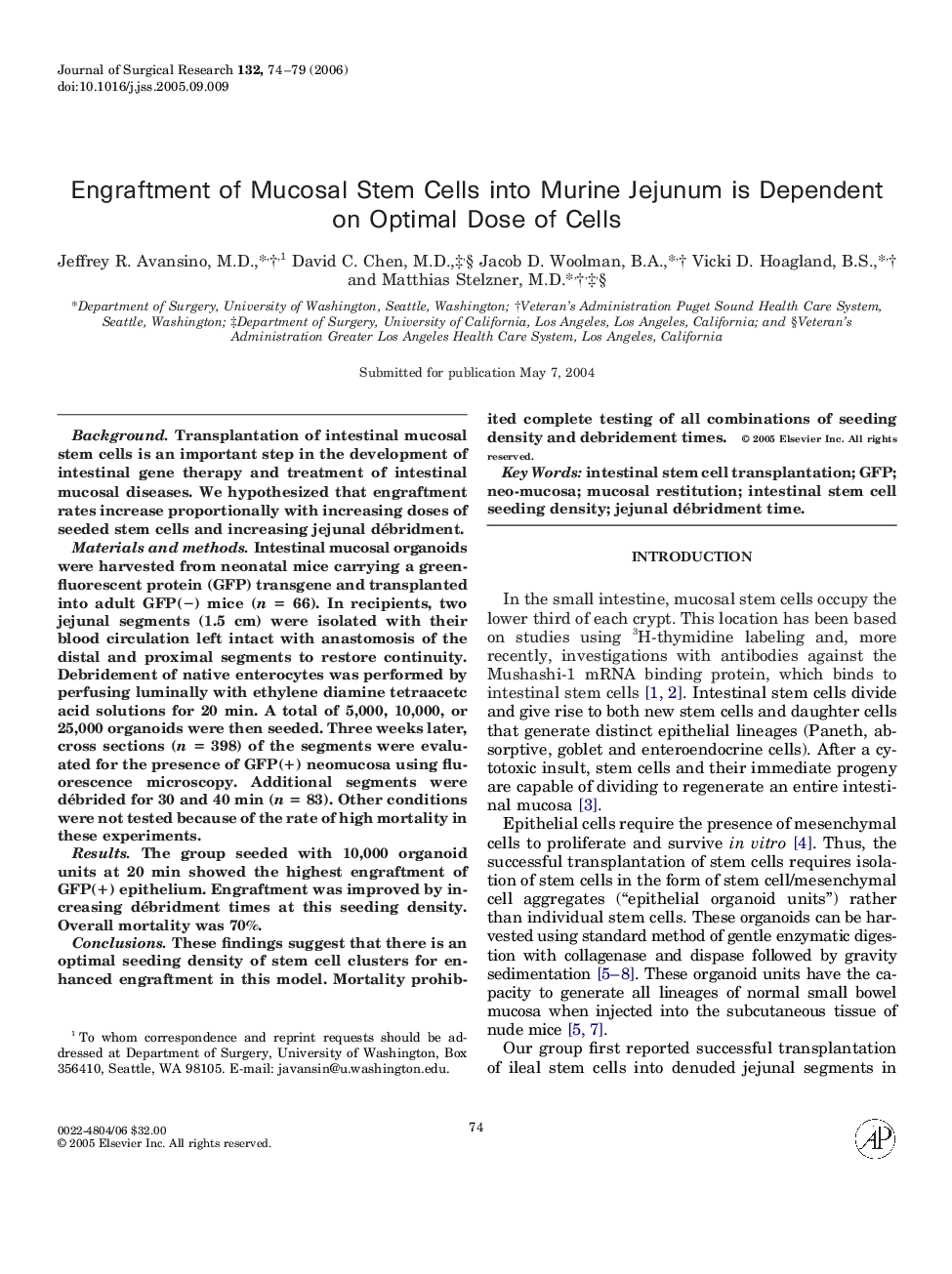| Article ID | Journal | Published Year | Pages | File Type |
|---|---|---|---|---|
| 4305179 | Journal of Surgical Research | 2006 | 6 Pages |
BackgroundTransplantation of intestinal mucosal stem cells is an important step in the development of intestinal gene therapy and treatment of intestinal mucosal diseases. We hypothesized that engraftment rates increase proportionally with increasing doses of seeded stem cells and increasing jejunal débridment.Materials and methodsIntestinal mucosal organoids were harvested from neonatal mice carrying a green-fluorescent protein (GFP) transgene and transplanted into adult GFP(−) mice (n = 66). In recipients, two jejunal segments (1.5 cm) were isolated with their blood circulation left intact with anastomosis of the distal and proximal segments to restore continuity. Debridement of native enterocytes was performed by perfusing luminally with ethylene diamine tetraacetc acid solutions for 20 min. A total of 5,000, 10,000, or 25,000 organoids were then seeded. Three weeks later, cross sections (n = 398) of the segments were evaluated for the presence of GFP(+) neomucosa using fluorescence microscopy. Additional segments were débrided for 30 and 40 min (n = 83). Other conditions were not tested because of the rate of high mortality in these experiments.ResultsThe group seeded with 10,000 organoid units at 20 min showed the highest engraftment of GFP(+) epithelium. Engraftment was improved by increasing débridment times at this seeding density. Overall mortality was 70%.ConclusionsThese findings suggest that there is an optimal seeding density of stem cell clusters for enhanced engraftment in this model. Mortality prohibited complete testing of all combinations of seeding density and debridement times.
